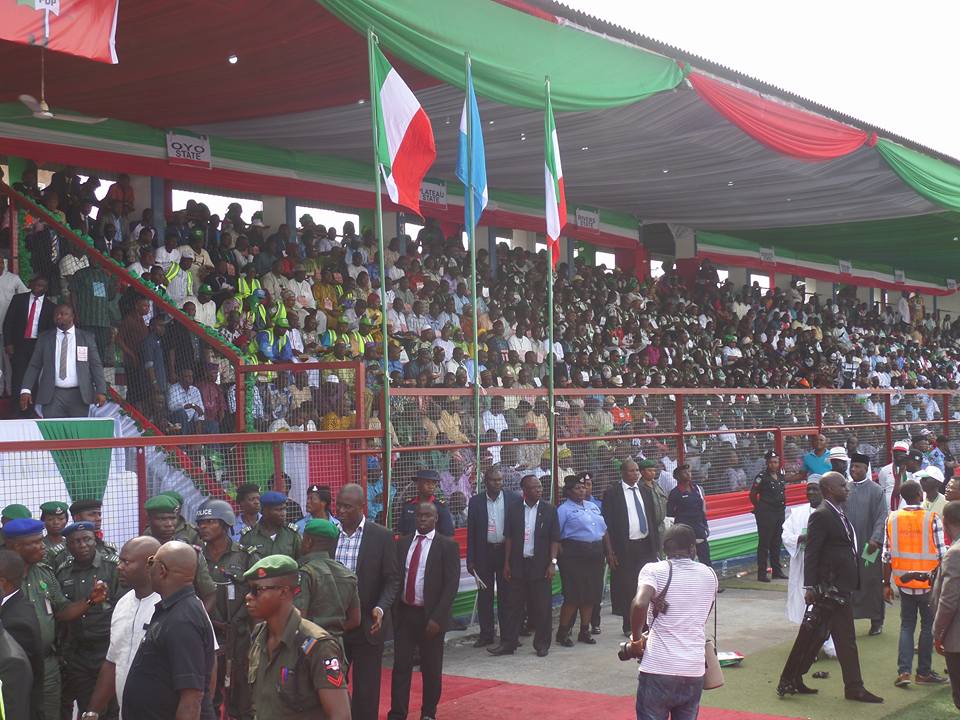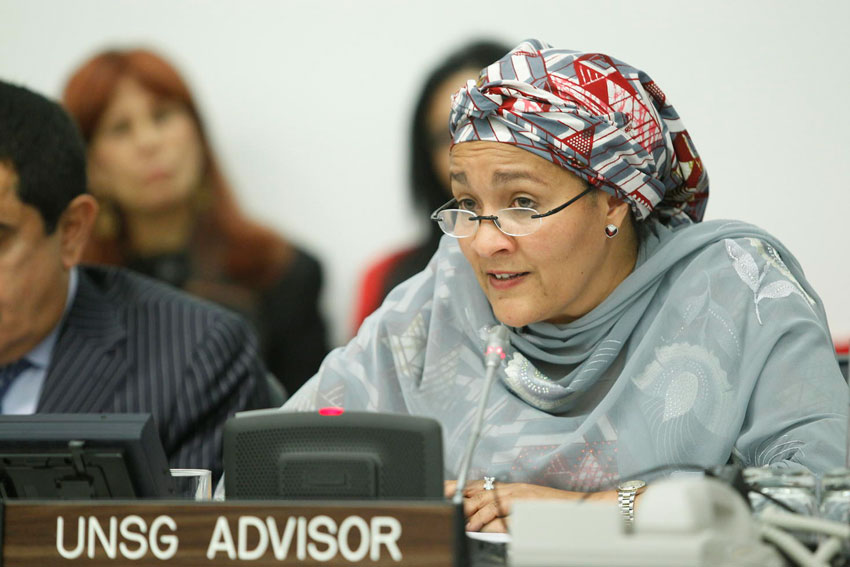BY SIMON NCHETA
INTRODUCTION
Being a developing country as well as one of the most populous countries in the world, there is bound to be a gaping housing deficit in Nigeria. Not only are we plagued with an ever-growing housing deficit, but large numbers of our population live in substandard accommodation, with an estimated populace of 100 million Nigerians living in substandard accommodation (over 6% of the global) and a housing deficit said to currently stand at 17 million, growing at a rate of 900,000 per annum. These are astonishing figures considering the population of the Netherlands is just under 17 million people.
Because the housing issue is a glaring one, it is habitually at the forefront of discussions during campaign cycles, but in reality it is rarely an issue that is tackled with poise and vigor. With the snails pace progress made in the housing sector over the years, you would not be blamed for thinking the underlying problems are complex, but the everyman who faces these issues each waking day will tell you the problems are pretty clear.
Advertisement
The housing market in Nigeria and other countries function as an ecosystem of relevant shareholders including; buyers, sellers, developers, and financiers. Each actor in the housing ecosystem cannot play a part in the market without the aid of financing, or the possibility of receiving financing. Developing countries such as Nigeria are forced to develop their financing capabilities in order to cater to the demand for housing. An established and diverse capital market system has been out of our reach for a while now, but with the emergence of the BVN system and an adequate credit rating system, it is time to really thrust extensive efforts into disentangling the issues surrounding the housing market and its accompanying financing in Nigeria.
As with almost all other sectors in the economy, investors in the housing market will have to be led by the government to create an enabling environment to engage on a large scale. For the housing deficit to be depleted the government will need to encourage an atmosphere of dynamic lenders and lending rates to encourage development and acquisitions. The main aim of the government is to ensure houses can be built for affordable prices, and mortgages can be offered at suitable rates for the consumer.
The issues which have contributed to the deficit in the housing market are glaring, but as you will be able spot from the highlighted issues below, most can be addressed with the adequate financing mechanisms, and those that cant, can be solved by rigorous structuring spurred on by financing instruments.
Advertisement
HIGH PROPERTY DEVELOPMENT COSTS
In an economy where the minimum wage is N18,000 per month, there is an enormous disparity between the average earnings and the cost of property, and this disparity stems from the soaring land and development costs in the country. The whole process of developing a property to the market, from land acquisition and ownership, to construction permits and materials is tainted with high costs.
Unfortunately for buyers, Nigeria is one of the worst countries globally when it comes to registering a property, ranking 182nd out of 185 countries according to the world bank. This means from the onset, once a developer purchases a piece of land (usually at an astronomical price) they are saddled with a prolonged process to have the property registered, all the while possibly incurring interest on the loan secured to purchase the property. To reduce the cost of the loan, developers usually resort to greasing a few palms in order to get the registration documents processed. Depending on the design of the building, additional permits may be required, meaning the time from purchase to the breaking of ground can take between 6-24months, leading to an additional cost of around 20% of the cost of land in this phase alone.
As a foreign currency dependent country, a lot of our building materials fluctuate according to the exchange rate, which as you know is highly unstable at present. It is said that building a 3 bedroom house will cost on average $50,000 (N17,000,000) compared to $36,000 and $26,000 in South Africa and India respectively.
Advertisement
In all, this leaves modern low income earning buyers operating within a high value property market which they cannot afford. Some efforts are being made to drastically reduce the time and costs of developing housing projects, such as the push being made by the Federal Mortgage bank of Nigeria (FMBN) to create a centralized repository land and assets registry system, as well as aiming to create a Mortgage Electronic registration System similar to what is done in the United States. But as we know too well; systems fail, and can be used to the advantage of the insiders who stand to gain from a prolonged development process.
The housing situation in the country is in too much of a dyer state, to wade through system processes, policy restructuring bureaucracy and trial and error. Staring at another 900,000 being added to the housing deficit in the coming year, the government need to establish a closed eco systems where they are prepared to facilitate speedy land ownership and swift registration, based on a structured scheme in conjunction with the government.
ACCESS TO FINANCE
Funding is a key issue in Nigeria. High interest rates, stringent/marginalizing credit checks, demand for collateralized loans and a lack of credit history, all lead to an economy starved of finance. Banks lack the appetite for risks and as a result, the mortgage market has suffered. It is no surprise then that mortgage financing is attributed to only 5% of the housing units in Nigeria, compared to 37% in the UK. This low figure in comparison could be ignored if we didn’t have the 17 million and growing housing deficit.
Advertisement
Finance can be seen as the root of the poor showing in the mortgage market. Lenders are traditionally hamstrung due to high interest rates, leading to substandard mortgage products which do not meet the requirements of this highly overpriced market. Conventionally Nigerian banks and mortgage providers are forced to set their rates in correlation with government bonds and inflation, this leads to offering lenders high rates in order to stay competitive. These high rates often make mortgage loans untenable, and as a result financial institutions are less likely to grant loans for the non-high income earners, and even some of these loans need to be collateralized. Let’s not forget that these are the same financial institutions who are lending to developers, who due to lengthy wait times incur high interest costs which are then passed on to the buying borrower.
This associated high interest rate has led the banks to focus more on “risk-free” transactions, losing all appetite for credit risk. To de-risk the loan, financial institutions tend to focus more on customer liquidity than credit history, which does not suit the growing population of middle class who make up a large portion of the housing deficit.
Advertisement
Other than the current plight, there is no doubt that the Nigerian market is liquid, only in 2015 the Nigerian Mortgage Refinance Company disbursed N1 billion to Imperial Homes Mortgage Bank in order to stimulate the mortgage market. But in order to capitalize on the blustering potential in the country, financial institutions will have to offer uncollateralized loans, to risky buyers at a high and sustainable rate.
When banks do disburse these mortgage funds, they tend to be for short tenures which compound the issue of the high interest rate resulting in even more untenable mortgage terms to buyers.
Advertisement
THE SOLUTION
To the average Nigerian, these issues may seem boundless, as though they can only be solved by the buyers increasing their income, but let’s address the problem in stages;
Advertisement
As the cost of living space in Nigeria is deemed high in terms of the purchasing power of the average buyer, and also compared to other countries globally, it is clear that the government will need to begin by eradicating some of the barriers causing these high costs in the development stage. One such cause is the long lead time in registering and getting approval to begin work on a proposed site. Government mass housing schemes such as the Home Loans Guarantee schemes in the UK and Australia eradicate some of these lead times because they usually apply to government owned homes/land which are already approved for this process, hence the sign over of ownership is immediate and mainly dependent on a credit check which is also swift due to the fact that only a portion of the home value is mortgaged by the buyer.
High housing costs are not only due to interest costs occurred during the land registration process, there are some more glaring costs such as cost of materials which are determined by market conditions and cannot be immediately overturned. Hence, to have a positive effect on property developers, governments in high housing deficit countries such as Nigeria should aim to facilitate cheap and affordable loans which will allow developers reduce the cost of construction. This in turn will allow the government to encourage developers to use more local suppliers and technology in order to further reduce costs. This approach has been taken in China, where the AIIB disburses seed funding at single digit interest rates to property and infrastructure developers. Regardless of the housing deficit, countries such as Nigeria aiming to boost its economy should aim for to stimulate growth and local manufacturing, it just so happens that this will have a positive knock on effect for home buyers.
A sustainable housing financing system has to be present in Nigeria for its economy to grow, both on a financial and social scale. Even though the government may be able to assist developers in reducing the cost of construction, a true representation of income / property value must be present when setting mortgage rates.
The Nigerian government need to offer financial incentives to financial institutions or subsidize mortgage rates in order to facilitate growth in the housing sector. It’s not enough to build the houses, there also needs to be affordable mortgages in order for buyers to fully engage. This may sound like a tall order, but it really isn’t. With a government that aims to boost the economy and provide housing for the populous, offering subsidized single digit interest rate loans will encourage more development in the sector, allow more buyers to participate and at the same time increase government revenue through fund raising and direct lending, win-win!
The problems and barriers to encouraging growth in the housing sector are evident, but so are the solutions, and financing plays an important role in all phases. Financing solutions for the developers and the buyers as well carefully planned structuring could have a knock-on effect on the mortgage industry which could further stimulate growth beyond initially conceived government backed schemes. The future is bright, all we have to do is unlock it.
Views expressed by contributors are strictly personal and not of TheCable.
Add a comment






